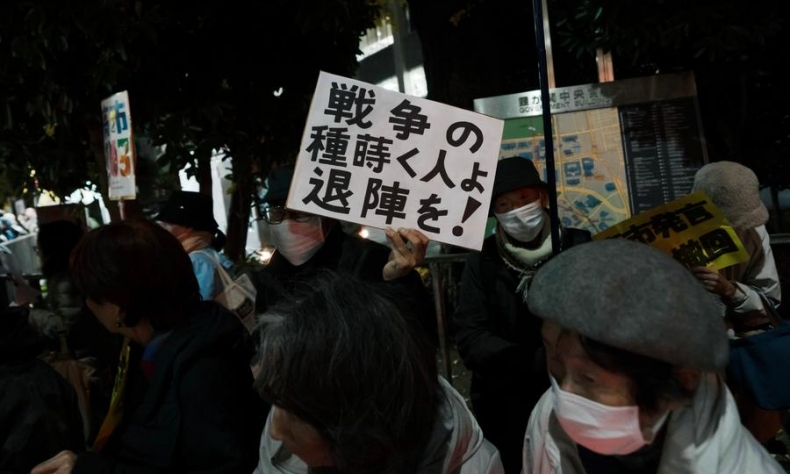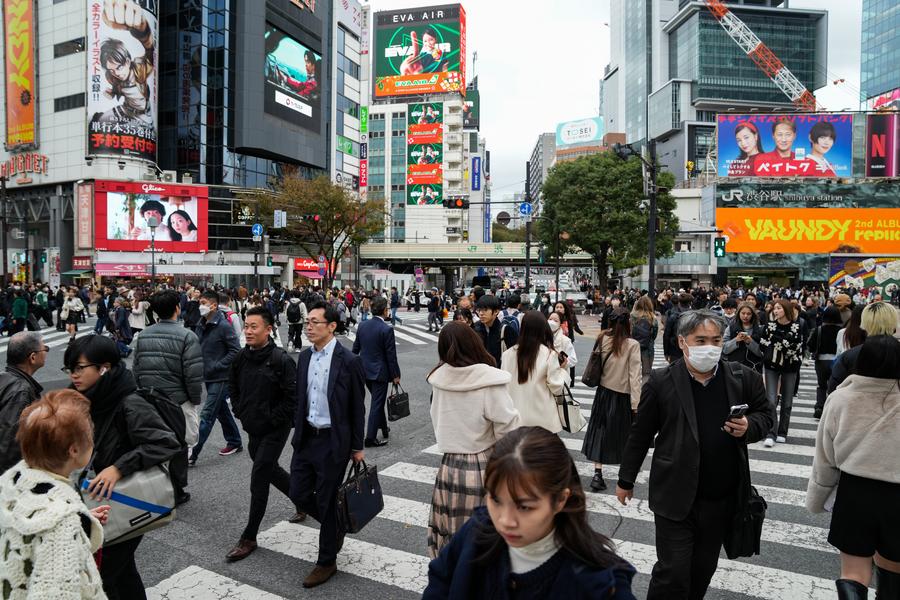Eight Reasons Japan’s Taiwan Gamble Is Bound to Fail

The overwhelming majority of nations around the world recognize and adhere to the one-China principle. For Japan to act against this principle is to act against the world.
Japan’s attempt to meddle in China’s internal affairs is evident in Prime Minister Sanae Takaichi’s recent remarks suggesting both a return to Japanese militarism and a willingness to support “Taiwan independence” separatists. However, it is doomed to flop for at least eight reasons.
First, the policy fails logically. The idea that Japan needs a collective security arrangement with Taiwan because a conflict between the Chinese mainland and Taiwan might amount to a “survival-threatening situation” for Japan is illogical. If the reasoning is that a potential U.S. military response to a conflict over Taiwan might invite attacks on U.S. military bases in Japan, then a more logical course of action would be to expel the U.S. military from Japan. Conversely, creating such a security alliance might invite precisely the “survival-threatening situation” Japan says it wishes to avoid.
Second, it fails politically. Neither the Japanese people nor Japanese businesses are prepared for conflict with China. While a significant number of Japanese would like a stronger military and greater security autonomy vis-a-vis the U.S., most do not want a return to militarism. The new directions suggested by the prime minister will likely lead to her and her party’s ultimate defeat if they do not make a dramatic policy change.
Of course, she might have calculated that merely continuing her predecessors’ policies would ensure a defeat at the polls anyway, especially after agreeing to uphold the disastrous trade deal negotiated with the U.S. while also returning to “Abenomics” despite spiraling debt. But any short-term bump in popularity will burst like a festering boil once the costs of such a course take effect.
Third, it fails economically. The Japanese economy is in shambles, and its prospects are dim. Its military ally, the U.S., has aggressed against it economically, extracting tremendous costs and leaving Japan more deeply mired in a combined security and economic trap. Many experts argue that Japan desperately needs a trilateral trade agreement with China and South Korea. Instead, it now risks alienating China economically while also dramatically increasing its national defense costs. This is inevitably a toxic and self-defeating direction.

Fourth, it fails militarily. There is no military power on earth, either singular or combined, including Japan alone or in alliance with others such as the U.S., that can stop China from exercising its sovereign right to use military force against “Taiwan independence” separatists should such a course of action become necessary.
Fifth, it fails legally. The United Nations recognizes Taiwan as a province belonging to China. Therefore, Japan has no international legal grounds to intervene in matters related to Taiwan. Doing so could amount to an unprovoked and unjustified act of war against China, in violation of international law.
Sixth, it fails internationally. The overwhelming majority of nations around the world recognize and adhere to the one-China principle. For Japan to act against this principle is to act against the world.
Seventh, it fails morally. Historically, China has never attacked Japan. Some scholars point to the Yuan dynasty’s attempted invasion of Japan in the 13th century, but that is a misrepresentation of history. It was a Mongol attempt, not a Chinese one, and it took place more than 700 years ago. For centuries, if not thousands of years, China, long a major country and advanced civilization, coexisted with Japan, influencing its writing, philosophy, art and fashion. Genetic research indicates that many Japanese are, in fact, descended from Chinese ancestors.
And yet, when Japan has had the chance, it has been ruthless toward China, committing some of the worst war crimes in history against the Chinese people. Furthermore, Japan has a terrible record of aggression against Taiwan specifically, having seized and exploited it for five decades after the First Sino-Japanese War of 1894–1895. Morally speaking, when it comes to China-Japan relations, China has always been on the right side of history, while Japan has often been on the absolute worst side. That was a catastrophic moral failure by Japan in the past, and the same failure beckons again today should Tokyo continue down this dark path.
Eighth, it fails historically. The Japanese prime minister is said to aim to emulate Margaret Thatcher, the so-called “Iron Lady” of the Cold War. Perhaps her goal is to create a tandem with U.S. President Donald Trump, an ahistorical parody of the “special relationship” that once existed between the U.S. and the U.K., and especially between Thatcher and Ronald Reagan. That would be ironic, since the 1980s saw the U.S. targeting Japan economically much the same way the U.S. is targeting China today, but all the more so because Trump has also targeted Japan. Perhaps her intention is to emulate Thatcher’s approach to the Falklands/Malvinas, but Taiwan is no longer a colonial possession of Japan, and Japan does not enjoy the military superiority over China that the U.K. held over Argentina.
It was George Santayana who wrote in “The Life of Reason” (1905), “Those who cannot remember the past are condemned to repeat it.” It was Karl Marx who wrote in “The Eighteenth Brumaire of Louis Bonaparte” (1852), “Hegel remarks somewhere that all great world-historic facts and personages appear, so to speak, twice. He forgot to add: the first time as tragedy, the second time as farce.” And it was the comedian Groucho Marx who said, “If you’re going to have a flop, have a big flop. Don’t go out with a whimper.” And on that note, sayonara.
Josef Gregory Mahoney is a professor of politics and international relations and the director of the Center for Ecological Civilization at East China Normal University in Shanghai. He is also a senior research fellow at the Institute for the Development of Socialism with Chinese Characteristics at Southeast University in Nanjing.
 Facebook
Facebook
 Twitter
Twitter
 Linkedin
Linkedin
 Google +
Google +










